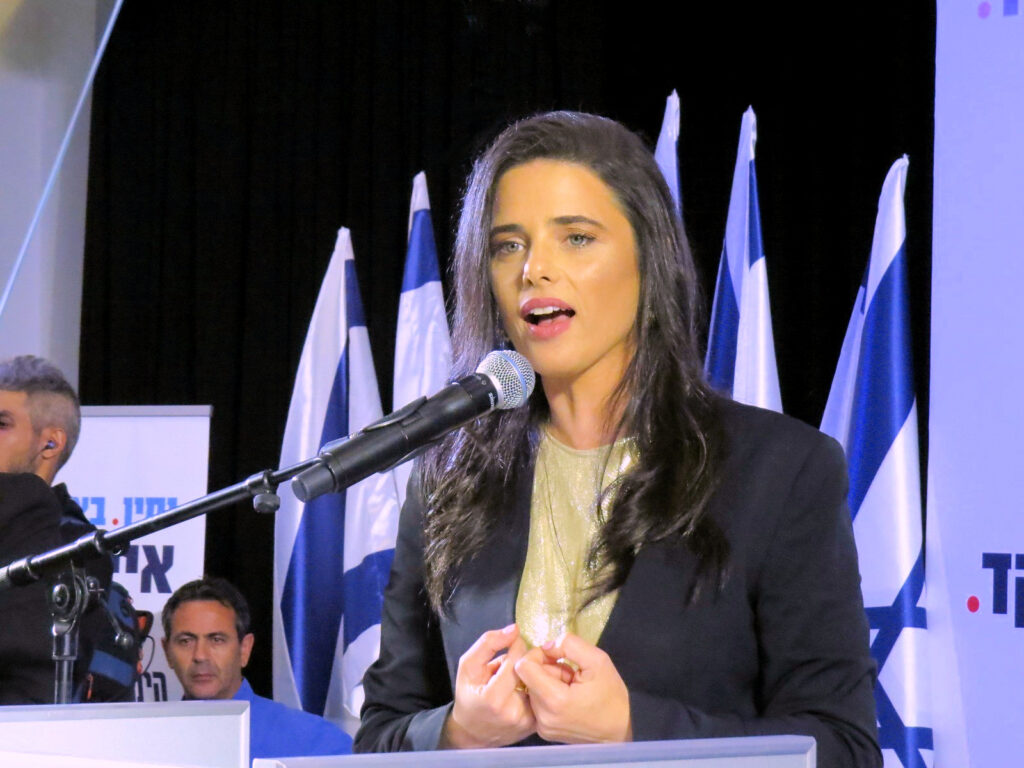IN THE MEDIA
Federal government’s actions feed antisemitism here
November 28, 2024 | Colin Rubenstein, Jamie Hyams

The Age – 28 November 2024
The Australian government’s November 21 decision to deny former Israeli justice and interior minister Ayelet Shaked a visa was a surprising act of hostility towards a democratic ally, especially considering the government won’t meaningfully act against the Iranian ambassador effectively calling for genocide.
While Shaked, an invited guest of the Australia/Israel & Jewish Affairs Council, has certainly made some controversial comments, mostly in the emotional aftermath of terror attacks, she has also acknowledged mistakes and promised to apologise if an investigation found allegations she had made were incorrect.
She is certainly no more controversial now than when she received a visa to enter Australia in March 2023.
This is just one in a series of severely disappointing government actions since October 7.
Most recently, Australia’s lame response that it will “respect the independence” of the International Criminal Court, after the court issued arrest warrants for war crimes against Israel’s Prime Minister Benjamin Netanyahu and former defence minister Yoav Gallant, was profoundly regrettable.
The ICC decision ignored the principle of complementarity – that the court must only intervene in countries that, unlike Israel with its independent judiciary, are incapable of taking legal action against their own leaders. The allegations the warrants are based upon – deliberately starving Gaza’s residents – ignore the huge amounts of aid Israel has facilitated, and the Hamas’ theft of some of it.
We should examine why the ICC has broken its own rules and acted in such a politicised manner, which our US ally President Joe Biden and our federal opposition both recognise in unequivocally repudiating this outrageous decision.
The events of October 7 and subsequent occurrences have severely traumatised the vast majority of the Jewish community. Many reactions to those events, including from our government, have compounded that trauma, creating feelings of isolation and even betrayal. Surveys show Israel is a central issue for upwards of 90 per cent of Australian Jews.
Even early condemnations of the October 7 pogroms and acknowledgement of Israel’s right to defend itself included admonitions to Israel act in accordance with international law, as if Israel intended otherwise.
This has been a constant theme, together with statements that the civilian death toll is unacceptable. The government appears to largely ignore the Hamas human shield tactics and Israel’s efforts to evacuate civilians from harm’s way, described by some military experts including John Spencer as unprecedented.
Australia’s voting record on Israel at the UN, where the Jewish state is frequently censured, has also deteriorated. Australia now abstains or even supports what it should oppose, as we saw again just last week on two draft resolutions including one on Palestinian sovereignty.
Other examples include supporting a motion last December demanding a ceasefire but not even mentioning Hamas. The government had, quite rightly, frequently stated Hamas has no role in Gaza’s future, yet supported a ceasefire that would have left Hamas in power.
Disappointingly, Prime Minister Anthony Albanese hasn’t visited Israel since October 7. Foreign Minister Penny Wong did, but unlike many other visiting dignitaries, she refused to pay her respects by visiting the sites of the Hamas atrocities.
It was also galling that a junior minister dressed down Israel’s ambassador in June, warning Australia wouldn’t support Israel going to war with Hezbollah to stop its rocket attacks that have driven more than 60,000 Israelis from their homes.
After Israel tragically accidentally killed aid worker Zomi Frankcom, Wong insisted on continuing to call Israel’s strike “intentional”, even when investigations by Israel and Wong’s specifically appointed special adviser found there was a misapprehension that Hamas was part of the convoy.
Even on the October 7 anniversary, the government couldn’t contain its condolence motion to the victims, also calling for a ceasefire and a two-state solution.
The constant blaming of Israel for civilian deaths and other one-sided, misplaced attacks on Israel’s conduct have undoubtedly contributed to an atmosphere permissive to the sharp rise in antisemitism since October 2023. The federal government condemns the antisemitism, but even here, its lacklustre conduct has gravely disappointed most of the Jewish community.
It has been insufficiently critical of the often antisemitic aspects of the anti-Israel demonstrations and camps. Also, government figures seemingly feel unable to mention antisemitism without adding “and Islamophobia”, as if antisemitism alone is unworthy of discussion.
Most Australian Jews feel great angst that Jewish students and staff feel unsafe on university campuses. The government blocked an opposition bill to establish a judicial inquiry with royal commission powers, clearly the best approach. Instead, it referred the problem to a parliamentary committee with fewer investigative powers.
The government’s own political calculations no doubt inform its actions. However, the overall effect has been to degrade Australia’s relationship with our most important Middle Eastern ally, and increasingly with our US ally, and to make Australia’s Jewish community, suffering its worst-ever wave of antisemitism, feel more isolated, and, it is strongly arguable, to inadvertently contribute to that surge of antisemitism itself.





